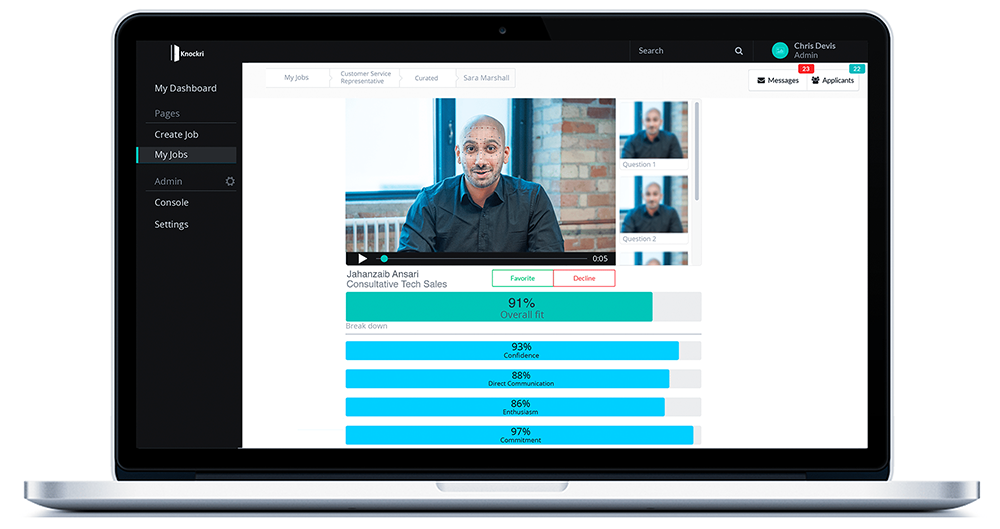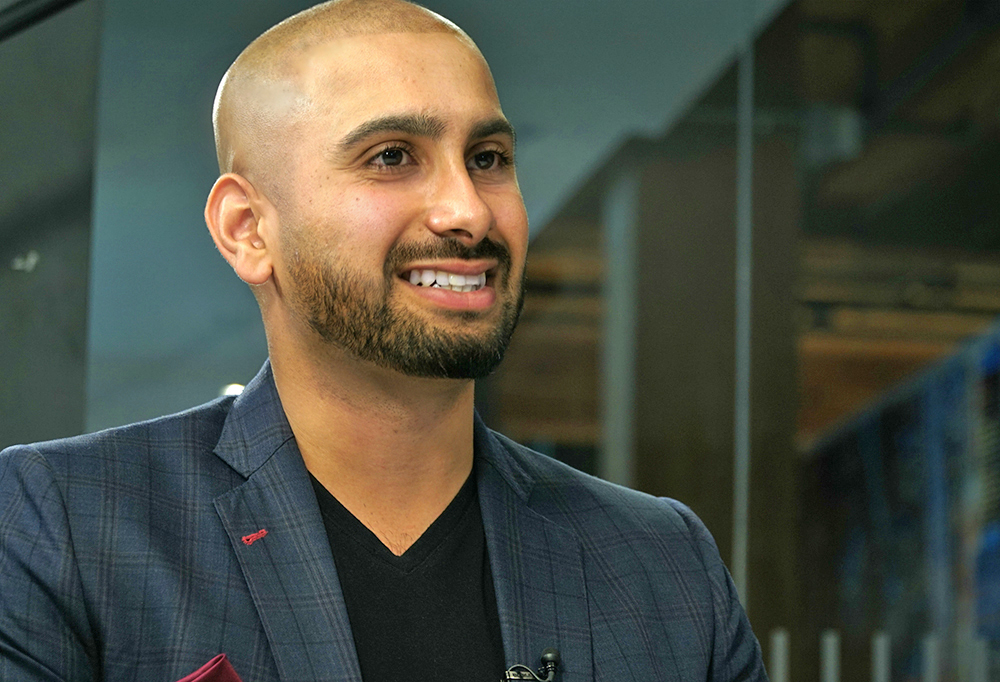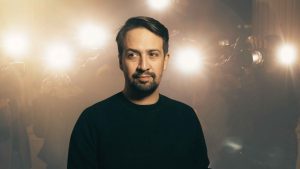No great success was ever achieved without failure. This rings true for Jahanzaib Ansari, co-founder and CEO of Knockri, an AI soft skills assessment tool that helps minimize bias in the hiring process.
Written by Holly Walker
Throughout his entrepreneurial journey Ansari had good ideas turn bad, faced “too many failures to count,” feelings of doubt, and countless sink or swim moments — but it is these very moments where Ansari’s grit and determination prove to be key elements to his success, and perhaps defining entrepreneurial attributes of those who make it.
Soon into attending the University of Toronto, Ansari dropped out. He knew he wanted to build something that would make an impact, despite being unsure what that would be. With no plan to fall back on, this was the first of many moments that Ansari found himself in where succeeding was his only option.
After creating and later leaving a successful venture in men’s fashion, and a not-so-successful brief stint with water technology, Ansari found himself in a familiar place of ‘survive or die.’
While applying to jobs using his given name, Ansari noticed a lack of responses from companies. Recent studies show people with ethnic sounding names are 28 percent less likely to be interviewed than applicants with Anglo-sounding names, even when their qualifications are the same. Recruiters often correlate ethnic names to having poor soft skills.
Encouraged by his now co-founder, Maaz Rana, to anglocize his name, Ansari began applying to jobs under monikers such as Jason and was hired within four weeks. However, the reality that other talented people were being overlooked solely because of their names sparked the idea behind Knockri, which has since been used by large corporations such as IBM and one of the largest private educational firms to assess english language teachers.
Knockri uses AI through video to qualify potential employees and increase diversity in the pool of shortlisted candidates. Once applicants pass a basic round of knock-out criteria such as education level or years of experience, they are directed to answer three to five video response questions on the specific job they are applying for. The video measures emotion and tonality in the applicants response. Their speech is converted into text and the AI analyzes the text for content. The AI tool does not decipher names, gender, race or accents, ensuring applicants are judged solely on their merit.
In 2018, Ansari was awarded as innovator of the year by Ascend, a pan-Asian diversity and inclusion group, for his efforts to diminish unconscious bias and increase diversity in the workplace.
Here are 8 quick Q&A’s with the latest entrepreneur of the week.


What was challenging throughout this startup journey?
Selling to a large enterprise was one of the toughest components of the startup. It’s the sales cycle and having that grit to be able to go through it with limited money, and convincing a massive organization that we can transform their talent acquisition function.
Why do you think you thrive in ‘survive or die’ situations?
I’ve realized that I’ve put myself into make it or break it situations because if I wasn’t, then I might not be pursuing what I’m pursuing. I might have just given up. Having no plan B is the best Plan A.
What is your personal mission statement?
My personal mission is to give everyone an equal opportunity and to build inclusive technology. I think if you have that endless belief, determination, and are consistent and disciplined anything is possible.
How do you define success?
Success for me is freedom. It’s the ability to wake up every day and be happy that I’m working on something that’s my own, that’s making an impact and improving lives.
You’ve known you co-founders for a long time. How has that added to your success?
I’ve known my COO, Maaz Rana, since high school and my CTO, Faisal Ahmed, since grade 8. Knowing each person’s personality and work ethic is important. Having that longevity helps and builds trust. If shit hits the fan, you know how they will react.
How can AI make society more inclusive in the future?
We need to be very cognizant of the technologies that we are putting out there. It can’t be solely for profit. For example we were going to align with a large American bank but they wanted us to shortlist all of their Latin talent to fill quotas. Financially, it would have been a great opportunity for us but people would have been looked over. We can make society more inclusive with AI, as long as we are cognizant on the application and ensure that it’s ethically sensible.
What advice do you have for the next gen of entrepreneurs?
Always be learning and have a growth mindset. There’s a lot of ego involved in many startups that don’t make it because they believe what they have built is a perfect thing. If you’re in doubt, speak to your customers, look at the market, and look at the situation objectively without putting your biases into it. If you have to fail, you have to fail fast.
What is one part of your day that helps you stay balanced?
I wake up at 5:30 and go to the gym in the morning. I love that time to take in the morning. I like having a coffee and doing some reading, and reflecting—that part really helps and shapes the rest of my day.








